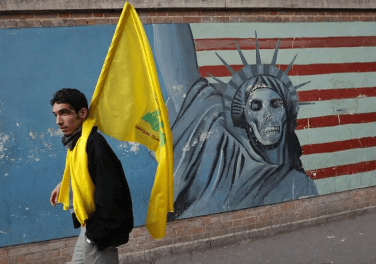
Why can’t Lebanon choose a president?
There is little sign that Lebanese MPs will choose a state president in the near future. They are happy the way things are despite the eight parliamentary sessions that were held to try and choose a president.
There is however, a real constitutional void that seems to be widening by the day. But that doesn’t seem to be worrying MPs or the sects and parties they represent. Almost every week for the past month – Michel Aoun left the presidential palace on 30 October, 2022 with no clear name decided upon to replace him – there was a voting session to choose a president but parliament continued to be split down the middle with people expressing different views.
Lebanon's legislative body has failed to elect a new president for nearly two months. What is hiding behind this deep political anomaly?
✍️ @nicfrakesjourno https://t.co/OEZsF2xTS4
— The New Arab (@The_NewArab) November 26, 2022
Deputies either returned blank papers, some mocked the process by writing far out names and others just supported their own. In the 128-seat parliament non of the candidates received the 65 vote minimum needed to choose of president despite the 85-member quorum needed to hold a session for the beleaguered presidential post that tends to be nominal but effective at the same time.
At one end of the spectrum Hezbollah wants a candidate that would protect the revolution and is in no hurry to find such a person. At the other end is Samir Geagea of the Lebanese Forces and his other allies supporting Michel Moawad for candidature; he is the son of Rene Moawad who was killed in 1989, two week after he become president.
#Lebanon’s politics are increasingly polarised, with leaders especially divided over #Hizbollah's role in government. With parties on both sides of the political divide able to block opponents’ preferred candidates, choosing a new president will prove challenging. [2/8] pic.twitter.com/72UiUu6lp7
— Crisis Group (@CrisisGroup) October 29, 2022
The latter is looking for a president for the whole of Lebanon, this is at least what he says. Choosing a president has become a difficult process for Lebanon. Before Aoun was chosen as president on 2016 it took MPs 46 parliamentary sessions and 30 months to decide to vote for him and then it was done through horse-trading with Hezbollah. It was a laborious affair.
The latter supported Aoun and his Maronite Free Patriotic Movement which in turn allowed Hezbollah more political power in the government and different state institutions. This in turn upset the Sunnis whose prime minister is always chosen from and other Christian denominations under the Lebanese 1943 political charter then drawn up by the country’s sects.
Political crisis continues in Lebanon as Parliament fails 8th time to elect president https://t.co/8mjCTLIivw
— Middle East Monitor (@MiddleEastMnt) December 4, 2022
Back to the present. With the end of the Aoun’s presidential tenure after six years in office, Hezbollah is switching its alliances once again. It no longer wants to ally with Aoun’s party whose leader is Gibran Bassil but is looking to support Sulieman Frangieh, a Christian politician with pro-Syrian leanings.
But it is early days and nobody is expecting a president to be chosen anytime soon. The Lebanese political elites are famous for their “wait-and-see” attitude so long as it doesn’t upset the balance of power. However, choosing a president is no longer an easy matter. This time around, the foot-dragging on a new president is complicating a very sensitive and difficult situation because of the economic crisis which Lebanon is reeling under and has been so since 2019. The World Bank and international donors will not unlock badly needed funds to cope with the country’s crisis.
And they won’t do that because of the present political instability and needed reform in the country. Today this continues because of the unwillingness of Lebanese politicians to want to form a new and stable government. After the last May parliamentary elections, the present government of Najib Mikati started to govern. But because of its caretaker-capacity label, it can’t actually introduce new laws until there is a permanent cabinet and that has to be chosen by parliament and formally endorsed by the president.
Vatican Secretary of State Pietro Parolin called on Lebanese leaders on Friday to "quickly agree on a president," expressing the Vatican's "deep concern" over the political stalemate, as Parliament has yet to elect a successor to Michel Aoun: https://t.co/f3COgLsanK
— L'Orient Today (@lorienttoday) December 2, 2022
The situation slowly becomes more complicated because when Aoun resigned last October he sought to force the Mikati government to resign but that was not accepted by the legislature nor of its speaker Nabih Berri. They argued that to force the caretaker government to resign would create a real constitutional crisis and opted to keep it in place to run urgent government business in a caretaker capacity.
Today also Mikati seeks to move one step further. He seeks to hold regular cabinet sessions to continue to run government business but he appears to be facing obstacles from different corners with constitutional wranglings and interpretations. Aoun’s FBM for instance, don’t believe he should do that because it would effectively means a fully-functional government without proper constitutional endorsements.
So we wait and see.
Source: msn





